By Rick VanSickle
It was 20 years ago that the first Pinot Noir vines for a little known wine project called Le Clos Jordanne were planted on the Twenty Mile Bench.
I was the Sunday Editor and wine writer working for the Calgary Sun at the time and accepted an invitation from Vincor, which owned Jackson-Triggs, Inniskillin and other top Canadian brands, to Niagara to see what all fuss was about. Vincor, which was eventually acquired by Constellation Brands and then sold to the Ontario Teachers’ Pension Plan and rebranded as Arterra Canada, partnered with the Boisset family of Burgundy to make high end Pinots and Chardonnay the likes of which had never before been seen in Canada.
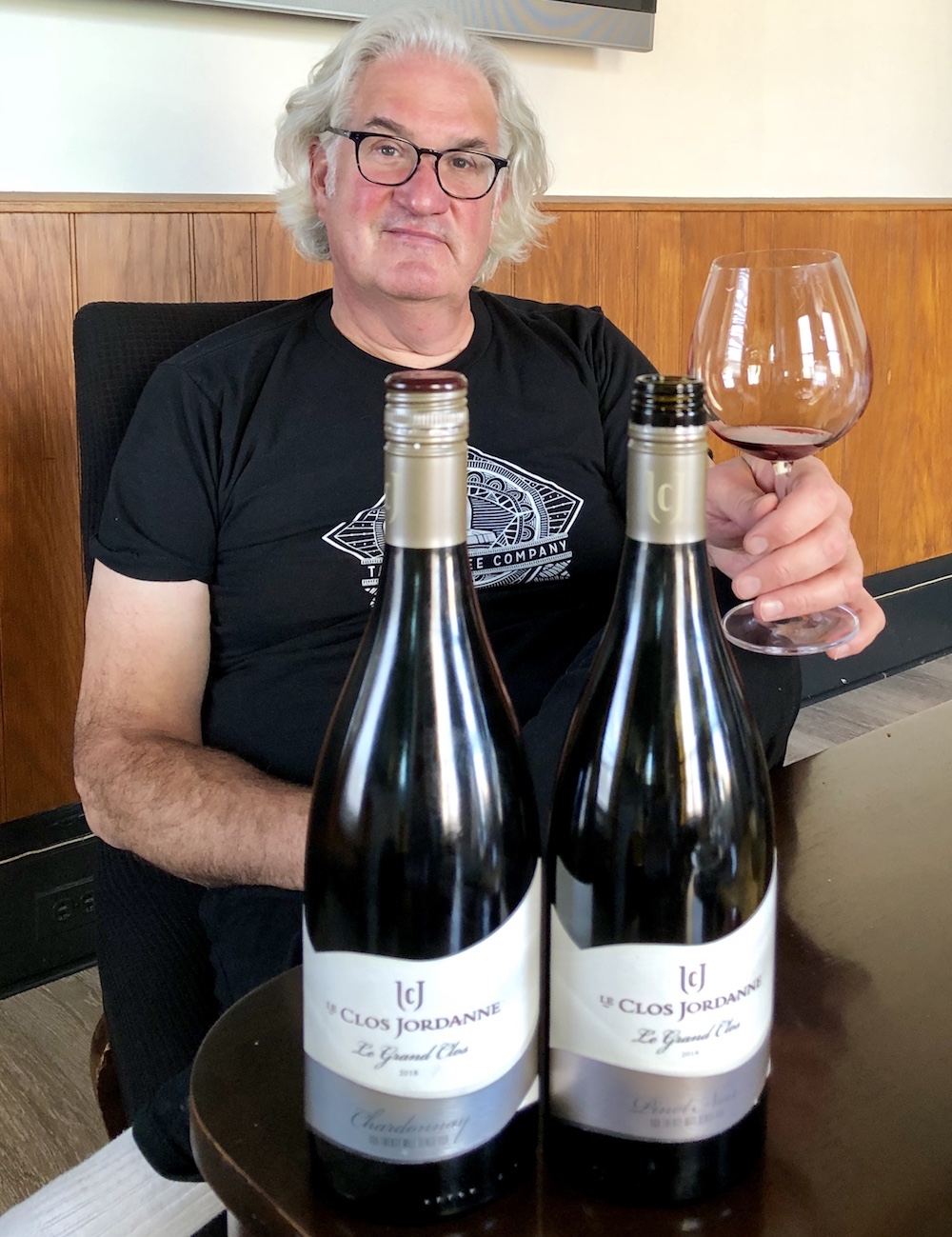
And as wine writers from coast to coast gathered in a clearing surrounded by newly planted vines in Jordan on that day in 2001, I can remember thinking, will this ever fly?
Yes, the ingredients were there for success — a solid partnership between the Boisset family and Vincor with the business savvy Donald Triggs at the helm. Both partners were convinced that if world-class Pinot and Chardonnay could be made anywhere in Canada, this location in Jordan was it. Most of the scribes in attendance, myself included, had their doubts that Pinot Noir in particular would be a success in Niagara.
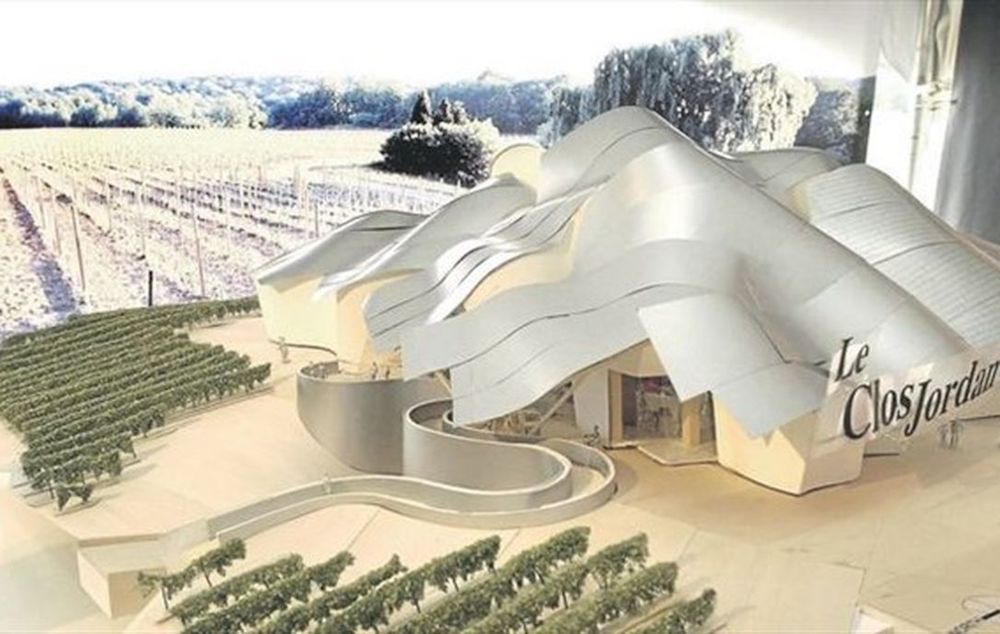
So certain of the terroir in the vineyards they chose, they called it Le Clos Jordanne and brought in renowned architect Frank Gehry, who was hired to design a majestic $40-million winery, shown above. It would never see the light of day.
But the wines did and they were impressive from the very first commercial vintage (a limited one) in in 2005 (and, yes, some rare 2004s were also bottled). Unfortunately, despite the critical success for the wines, the plans for Le Clos Jordanne were scaled back after the 2008 recession. The Gehry building project was cancelled, and Constellation Brands announced in 2016 that the 2012 vintage of Le Clos Jordanne was the last because of the small grape crops for 2013-2014 in the Niagara Peninsula.
But here we are today, after Le Clos was revived by Arterra with a 2017 reboot and Thomas Bachelder, top photo, the original winemaker, was back with the project following a stint by winemaker Sébastien Jacquey who seamlessly crafted the Le Clos wines in the absence of Bachelder.
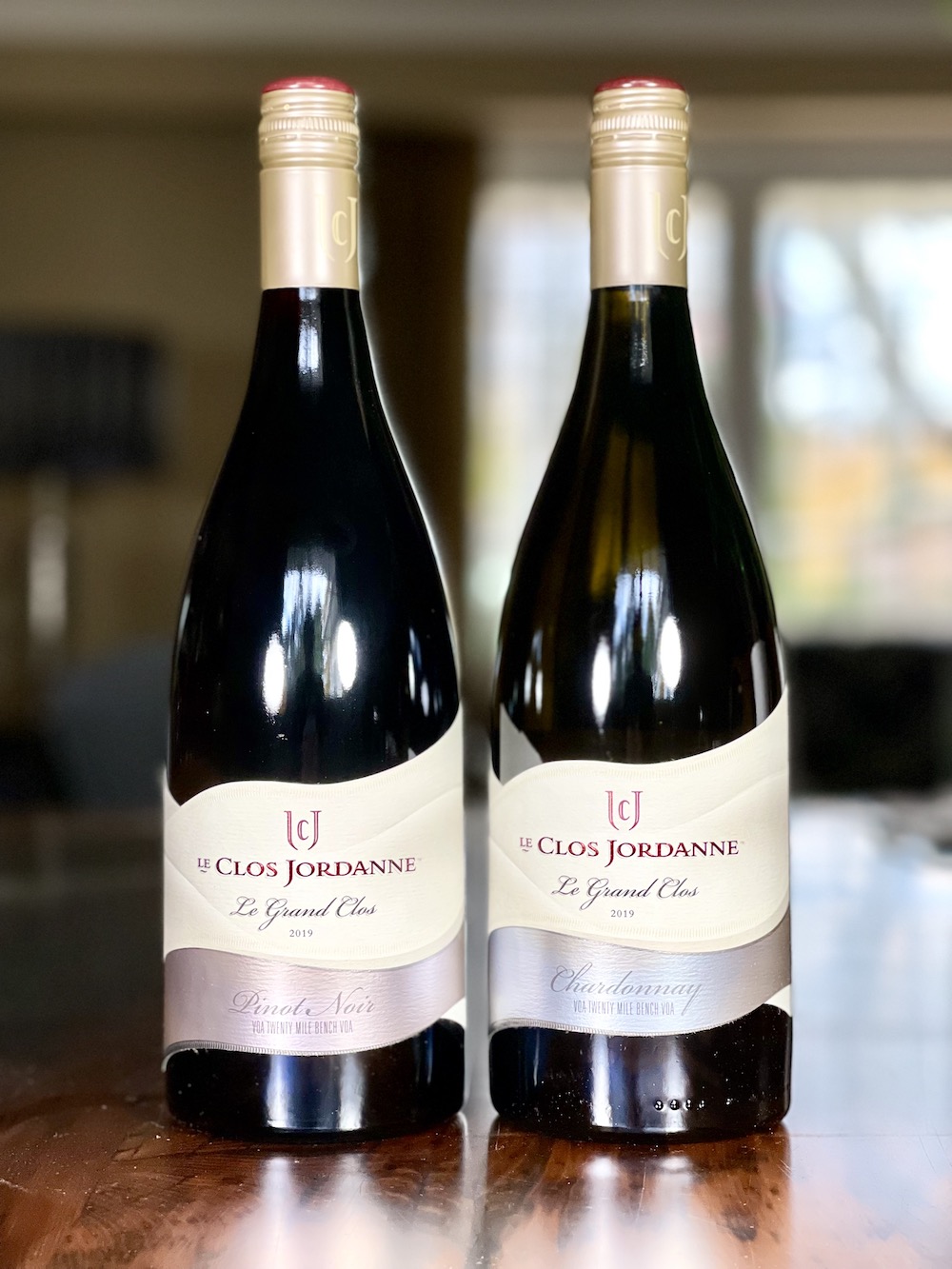
The 2019 vintages of the “cru” Le Clos Pinot and Chardonnay are just being released now. Though the portfolio has been trimmed down to just a “Village” wine and the Le Grand Clos for both the Pinot Noir and Chardonnay, as compared to several single-vineyard wines leading up to the Grand Clos, the quality has only improved as the vines get older. And the best development, at least for consumers, are the prices. The top wines were upwards of $65 before the project was halted, and now both are $45 while the Village wine retails for $25.
The 2019 Le Clos Jordanne Le Grand Clos Pinot Noir hits Vintages shelves this coming Saturday, along with some other top Niagara wines, while the Le Clos Jordanne Le Grand Clos Chardonnay 2019 is now available online at Arterra. We have reviews for both wines plus a roundup of our picks from the other Niagara wines being released Saturday, including Stratus, Westcott Vineyards, three from Henry of Pelham and another from Featherstone. We also review two new wines from Chateau des Charmes, plus news about a special award for Southbrook winemaker Ann Sperling. But first, the Le Clos wines.
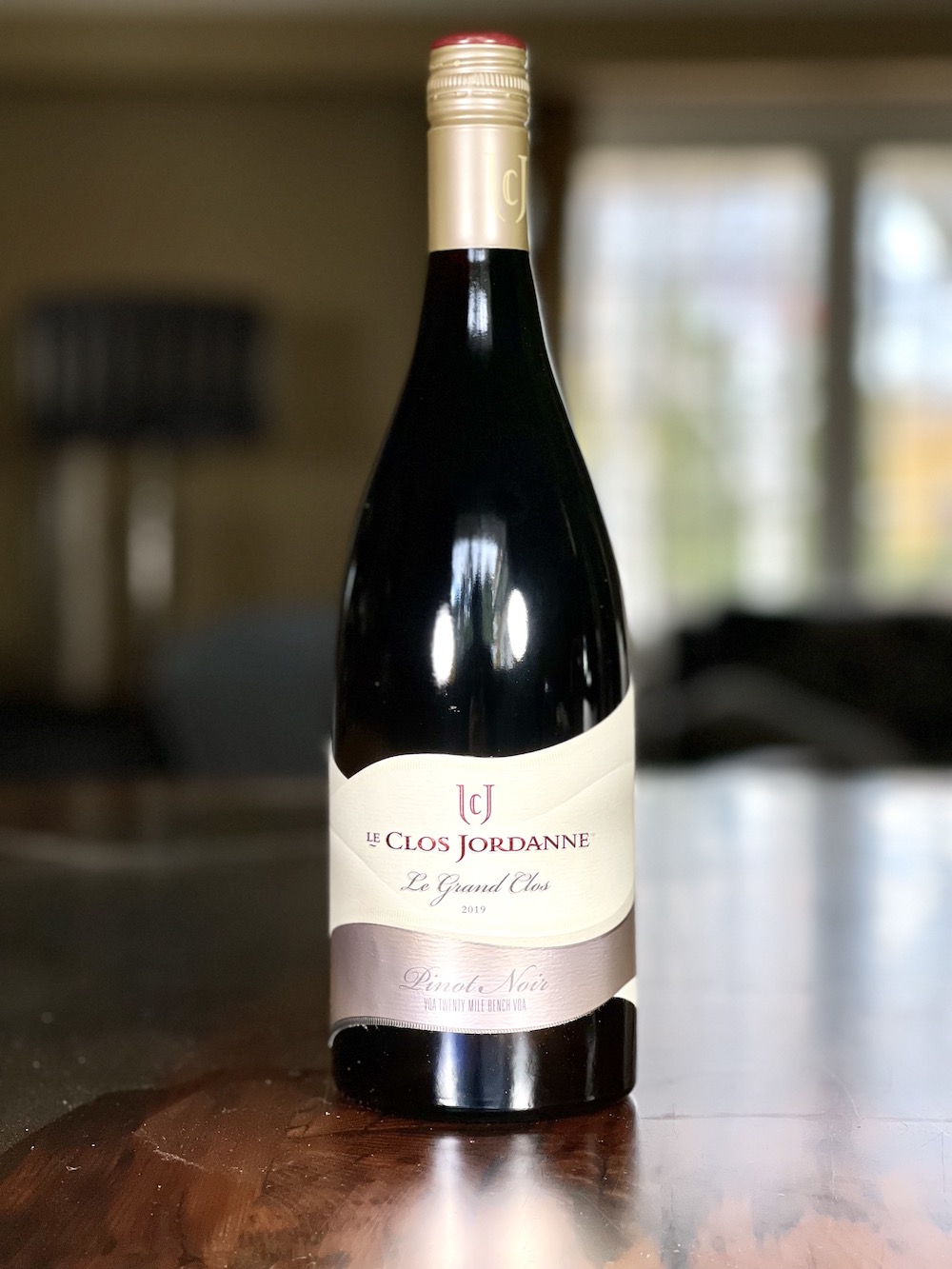
Le Clos Jordanne Le Grand Clos Pinot Noir 2019 ($45, Vintages release Saturday or online here, 92 points) — This single-vineyard Pinot Noir from Arterra Canada’s showcase brand Le Clos Jordanne will impress fans of winemaker Thomas Bachelder’s ethereal style — but you will have to wait for. And by wait, I mean buy, cellar and wait for it. There are two sides to this intriguing vintage; the nose which is well on its way to expressing the wine completely, and the palate, which is a bit backward and disjointed immediately out of the bottle. I tasted this wine right from the bottle upon receiving and by the time I tasted the wine soon after opening, I found it on the closed and muted side. I elected to give it a night or two in the bottle, introducing some oxygen, and I am glad I did — it began to open up beautifully. The nose is lifted with perfumed cherries, dark berries, raspberry bramble, fresh turned earth, steely minerality, subtle cassis, well integrated oak spices and light cedar notes. On first taste, it has a savoury/meaty edge with the fruit held in check, on second and third tastes, and up to two days later, it showed a complex array of ripe red berries and cassis on top and then complementing earthy/spicy accents and fine grained tannins that add structure all leading to highly finessed and fresh finish. I highly recommend a heavy decant on this wine if planning on drinking it now, or cellar 3+ years and up to 10 to fully realize the full potential.
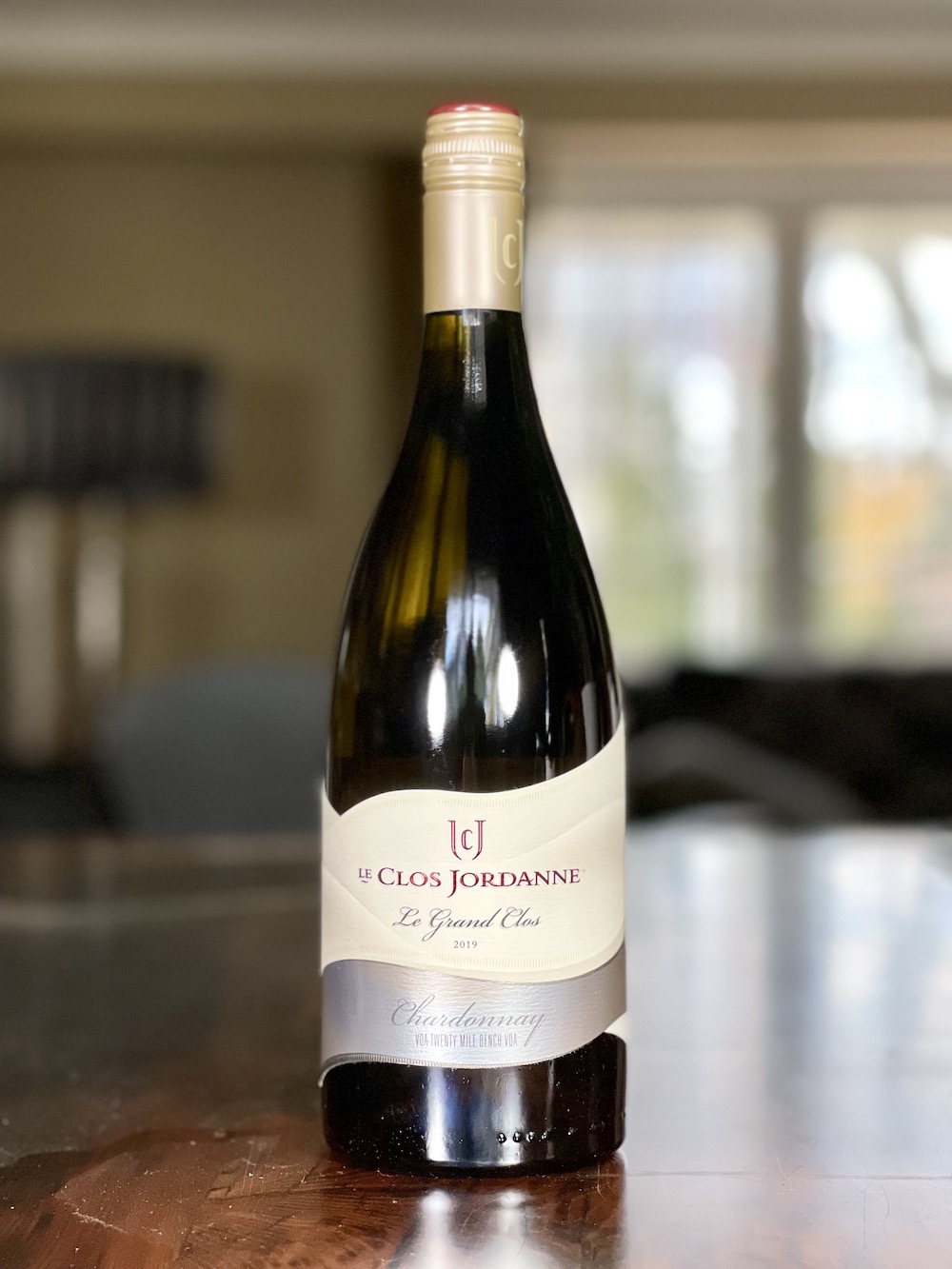
Le Clos Jordanne Le Grand Clos Chardonnay 2019 ($45, available here, 93 points) — The “cru” Chardonnay from Le Clos, like the Pinot, is wild fermented and aged in selected French oak barrels (only about 20% of which are new) for 16 to 18 months. This has a saline nose of ripe pear, baked apples, toasty notes, honeysuckle, bergamot, lemon tart and lovely integrated spice accents in a pure and elegant style. It has a rich and savoury entry on the palate with ripe quince, lemon zest, fine oak spices, creamy/toasty/buttery notes, chalky minerality with a touch of flint and such a bright, lifted and finessed finish. Highly satisfying and elegant Chardonnay that can age well for 6+ years.
Also released Saturday at Vintages:

Stratus Red 2017 ($49, 93 points) — The red assemblage from winemaker J-L Groux ended up being a blend of 32% Cabernet Franc, 32% Cabernet Sauvignon, 19% Merlot, 11% Petit Verdot and 6% Tannat with 567 days aged in French oak, 30% of which is new oak. The blend is arrived at with the same rigorous barrel sampling across all the red varieties grown at the estate and the recipe is never the same as previous vintages. 2017 was a gorgeous vintage for Cab Franc and it’s easy to see why it plays a lead role in the blend. It has a lovely herbaceous nose of fresh red fruits, forest berries, bramble, cassis, subtle blackberries and fine integrated oak spices. It has elegant texture in the mouth, from start to finish, with medium tannin structure — plush but not an affront to the senses — with black cherries, brambly raspberries, cassis, currants, depth, complexity and beautiful spice notes on a long and finessed finish. A fine red blend that will bring pleasure for years to come.
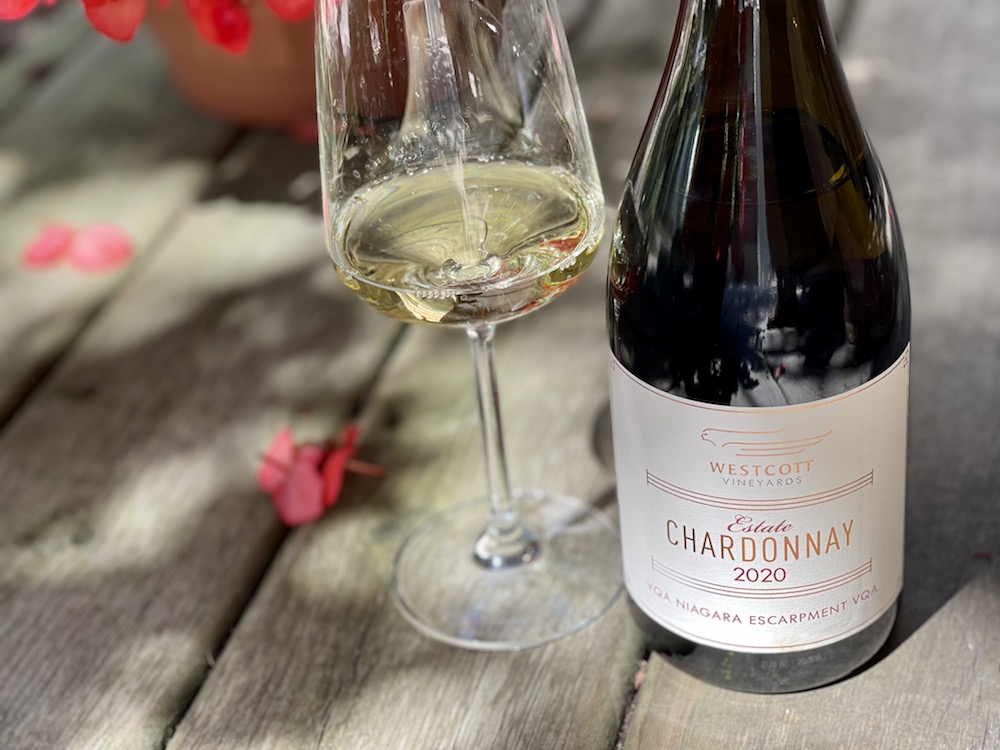
Westcott Estate Chardonnay 2020 ($30, 91 points) — The fruit was hand picked and whole bunch pressed with no sulphur added at time of crushing. It was wild fermented and aged in 100% French oak (10% new) for 10 months. It shows a nicely ripe nose of generous orchard fruits, lemon cream, toasted spices and stony minerality. It’s rich and creaming on the palate with pear, apple, citrus zest, integrated spice notes and juicy acidity keeping it lively through the finish.
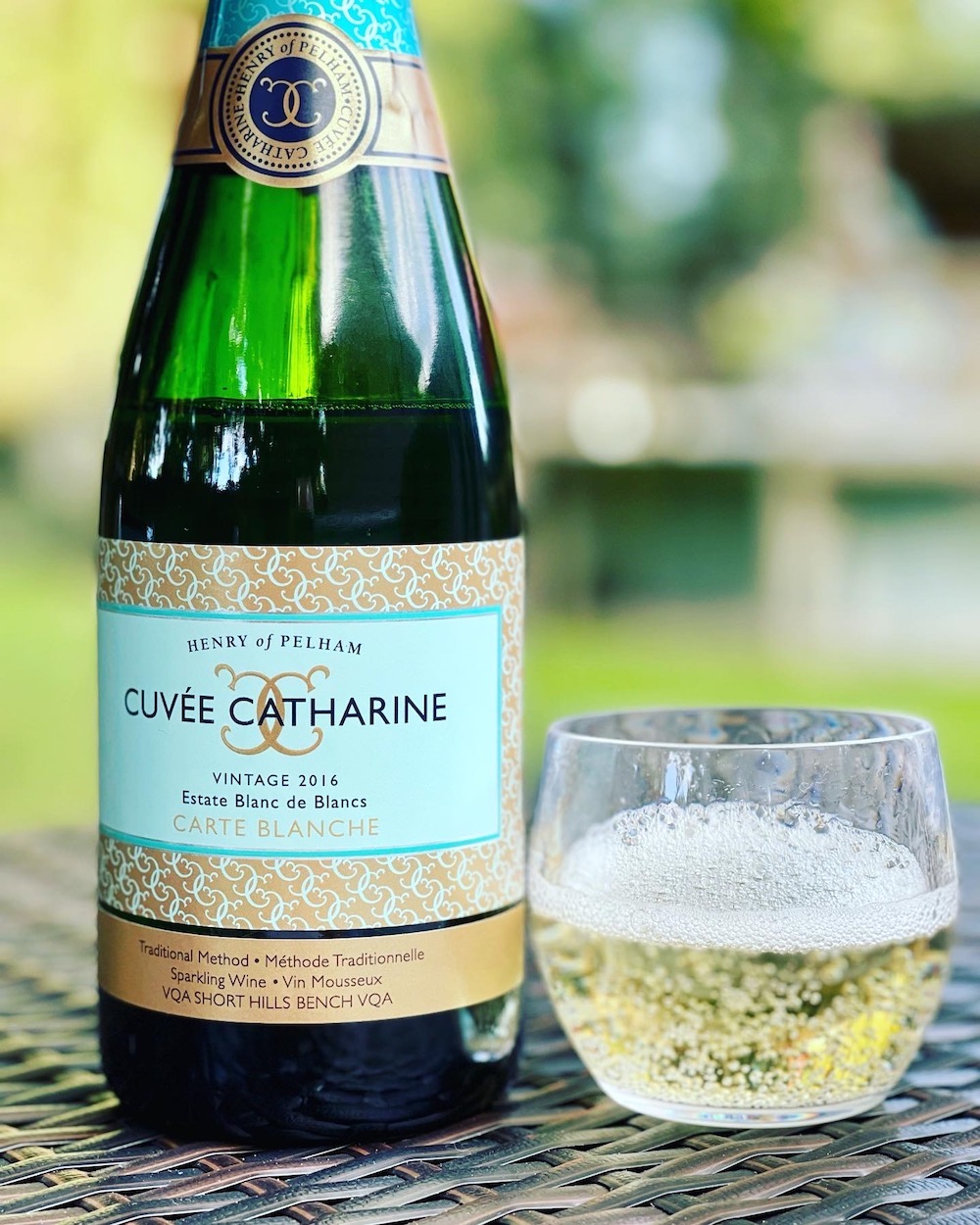
Henry of Pelham Cuvée Catharine Carte Blanche Estate Blanc de Blancs 2016 ($50, 94 points) — There are many skews in the Henry of Pelham portfolio, but I would venture that this always consistently excellent wine is the most highly decorated wine in the entire body of work at the Short Hills Bench winery. Carte Blanche is a vintage expression of Cuvée Catharine with the fruit sourced from the oldest and best estate-grown Chardonnay vineyards. The best of the best juice is isolated, partially barrel fermented and than aged on its lees for 54 months. It has an inviting nose of toasty biscuit, pear, mineral, fresh apple, soft vanilla, brioche and cream with a vigorous, elegant mousse. The creamy texture is the first impression on the elegant entry, with a lively bubble, toasty vanilla and brioche, ripe pear, quince, lemon toast and rousing freshness on the perky finish. It’s drinking so well right now, but has the energy and stuffing to age gracefully for a few more years. Beautiful sparkling wine.

Henry of Pelham Speck Family Reserve Riesling 2019 ($28, 94 points) — The Speck Brothers do a lot of things right from their Short Hills Bench estate, but Riesling is a cut above all the rest and this top cuvee is consistently one of the best Rieslings made in Niagara. The vineyard where this Riesling is grown was planted in 1982 to the famed Weis 21b Clone. It has a racy, saline nose of gushing lime, grapefruit, lemon blossom, green apple, tangerine, stony minerality and a subtle note of ginger. There is an interesting tug of tension between sweet and tart citrus then wet stones, lemon pith and ginger with a dry impression on a finish that’s long and fresh. The racy vein of acidity should carry this wine to even greater heights for 15+ years. A cellar must for collectors of Niagara Riesling.
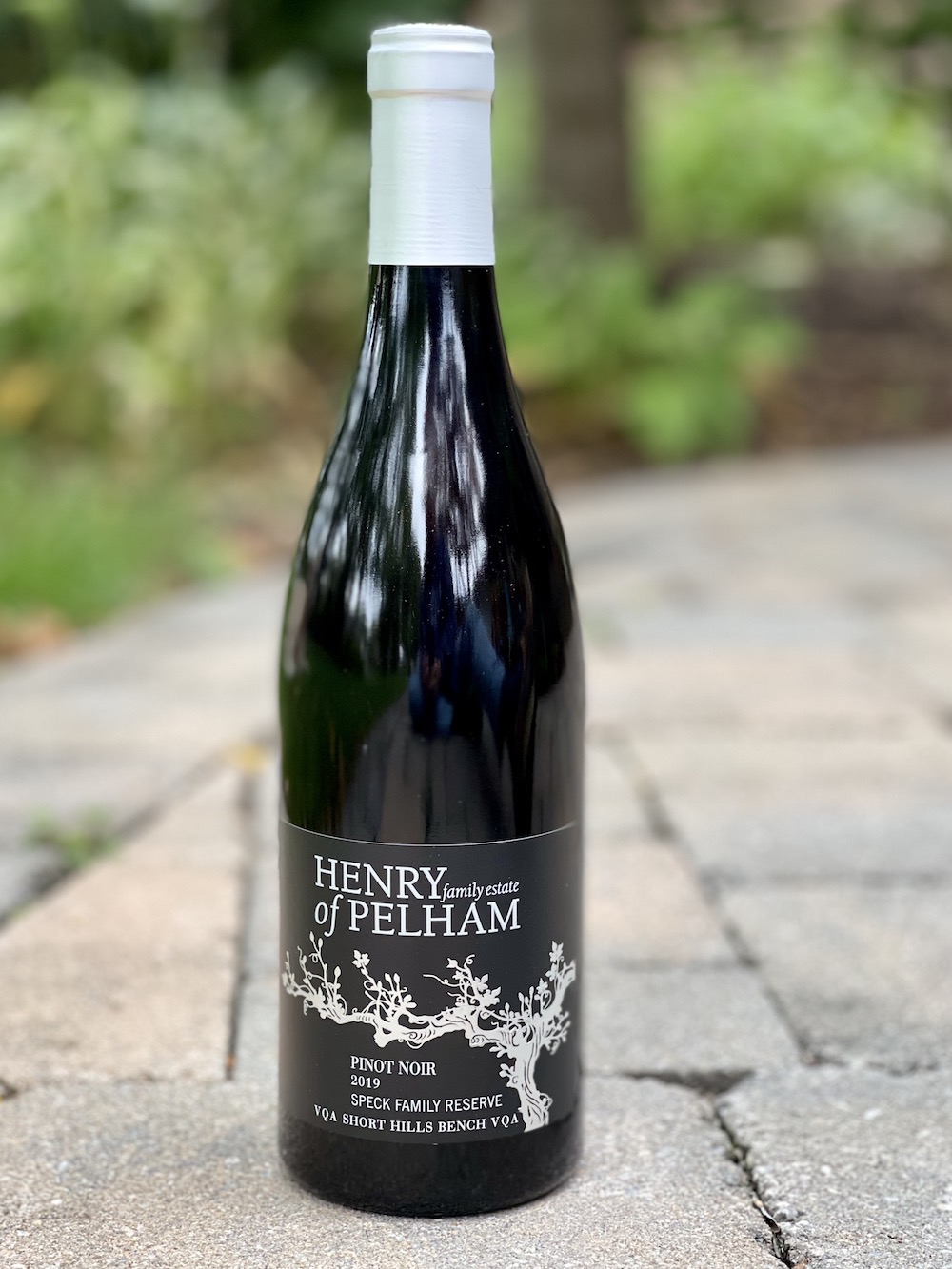
Henry of Pelham Speck Family Reserve Pinot Noir 2019 ($35, 93 points) — This top tier Speck Family Reserve Pinot is sourced from Block 100 at the “Old Farm” Vineyard. The wine is aged in European oak barrels, 30% of which is new oak. This is on the masculine side of Pinots with interesting complexity and firm structure for long aging. The nose is tight and begins with earthy/woodsy notes followed by black cherries, mulled and brambly raspberries, crunchy cranberries, spice rack and violets. It’s lovely on the palate with ripe red berries, earthy/spicy notes, anise and fine-grained tannins that all lead for a pleasant and finessed finish. It’s a young Pinot and needs time to fit into its skin, cellaring for 5+ years will pay big dividends.
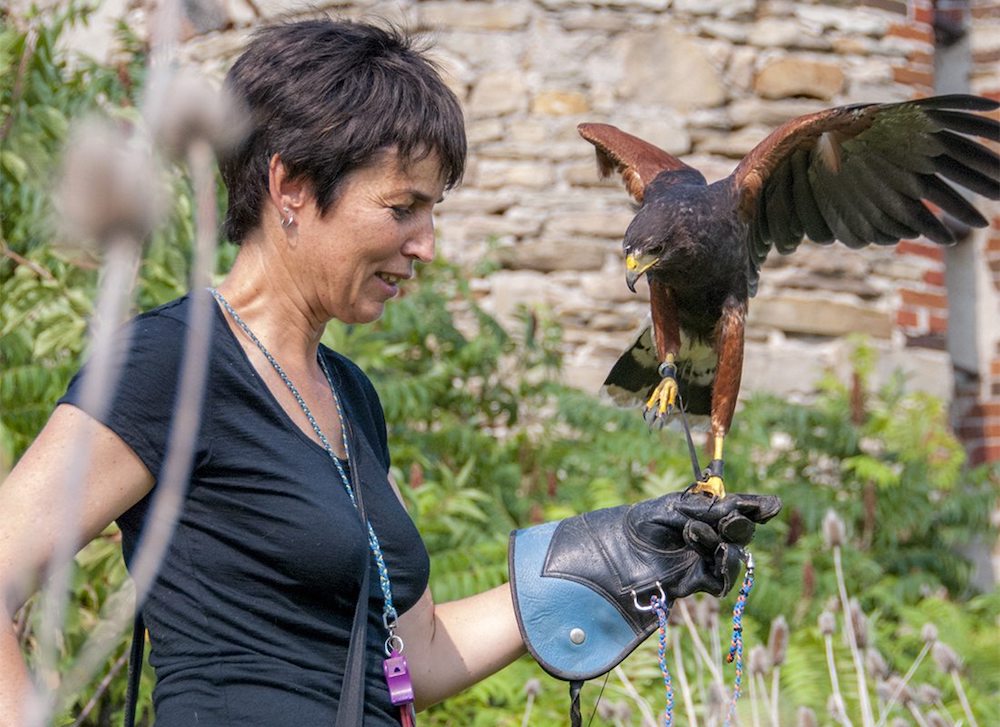
Featherstone Red Tail Merlot 2019 ($20, 90 points) — Graceful and swift, red tailed hawks are an impressive sight above the vineyards of Niagara and Featherstone makes this Merlot as a special appreciation of wild raptors. The Red Tail Merlot is aged in French oak barrels for 10 months. This has a ripe, expressive nose of black cherries, red currants, raspberry bramble, touch of blueberries and subtle but elegant spice notes. It has medium tannins and structure on the palate but ultimately quite smooth with bursts of red berries, anise, spice and a bright, finessed finish. Can age 3+ years.
Other Niagara wines released Saturday, but not reviewed by Wines In Niagara:
• 13th Street Premier Cuvée Sparkling 2015 ($40)
• Kew Vineyards Blanc de Noirs 2017 ($30)
• Magnotta Venture Series Starlight Sparkling Riesling/Vidal NV ($30)
• Megalomaniac Omaniac Bubblehead Sparkling Rosé NV ($35)
• Inniskillin Gold Vidal Icewine 2018 ($90 for 375 bottle)
• Creekside Red Tractor Merlot 2019 ($18)
• Peller Estate XXI JEP Red NV ($80, Flagship stores only)
Ann Sperling wins
prestigious award
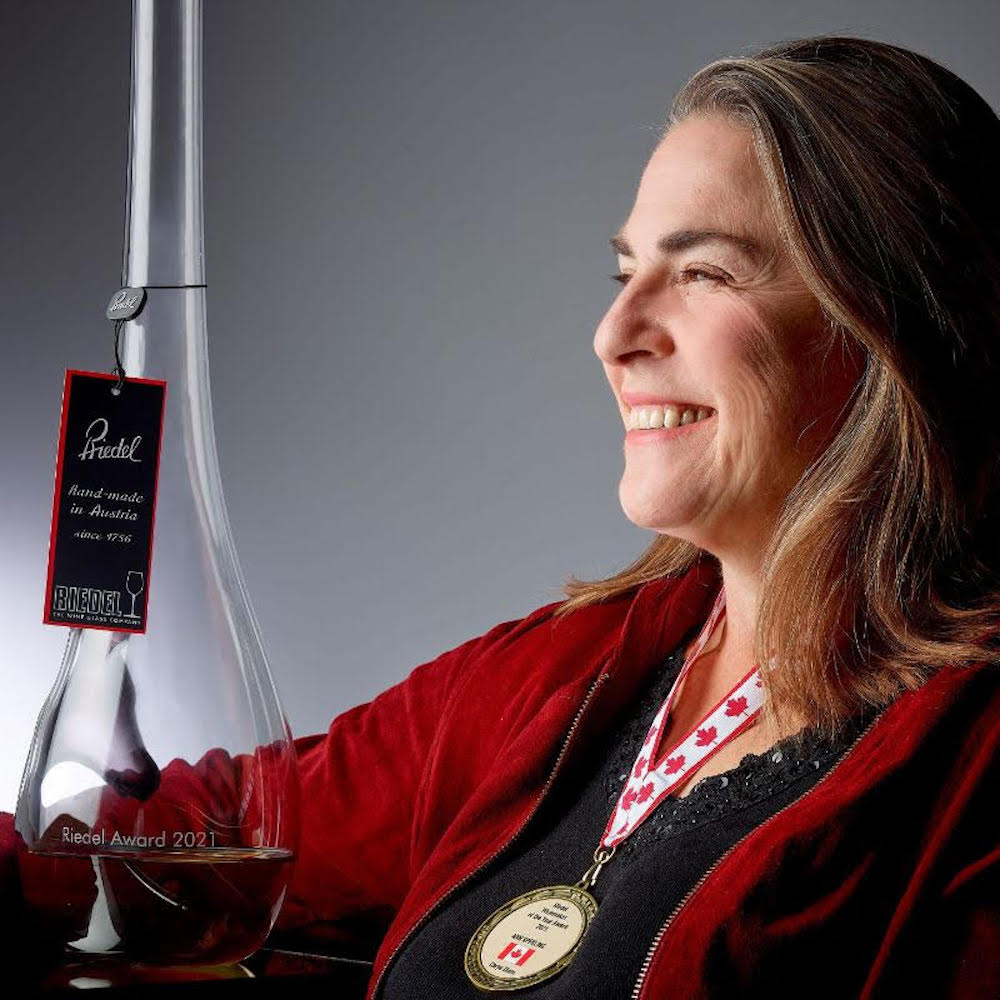
A shout out to Canadian winemaker Ann Sperling who was named this year’s recipient of the 2021 Riedel Winemaker of The Year. The honour was awarded by the Cambridge Food and Wine Society of Canada in recognition of Sperling’s contribution to the winemaking industry and her accomplishments at Southbrook Vineyards as well as Sperling Vineyards in the Okanagan Valley and Versado in Argentina.
Previously, the Riedel Awards have been presented to Robert Mondavi, Lamberto Marchesi de Frescobaldi, Miguel Torres, Sandro Bottega, Laura Catena and Eduardo Chadwick. From Canada, Karl Kaiser, Donald Ziraldo and Anthony von Mandl are all former recipients.
Two new wines from
Chateau des Charmes
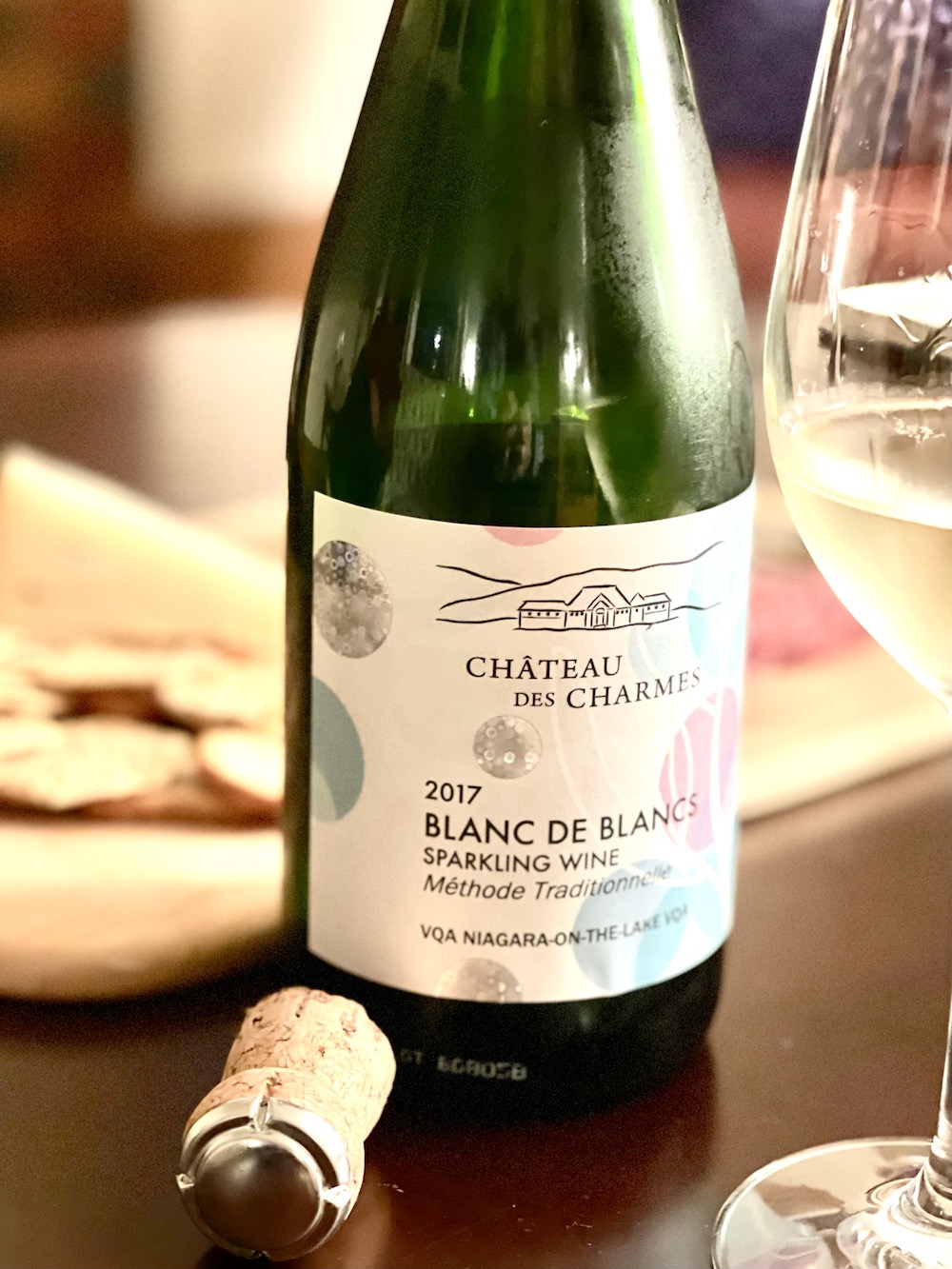
Chateau des Charmes Blanc de Blancs Sparkling 2017 ($35, winery, online, 92 points) — This 100% Chardonnay sparkling wine is made in the traditional method and aged on the lees for minimum of two years before disgorging. It’s a vintage dated bubbly, which is rare for Chateau des Charmes, and reserved only for the best years. It shows a steady and elegant bead in the glass with a nose of toasty vanilla, fresh baked bread, pear, lemon and green apple with a fresh and vibrant appeal. A fine mousse tickles the palate and enlivens the pear/apple and zesty lemon notes with bready-brioche and slate minerality accents all leading to a fresh, vibrant finish. A really fine bubble at an attractive price.
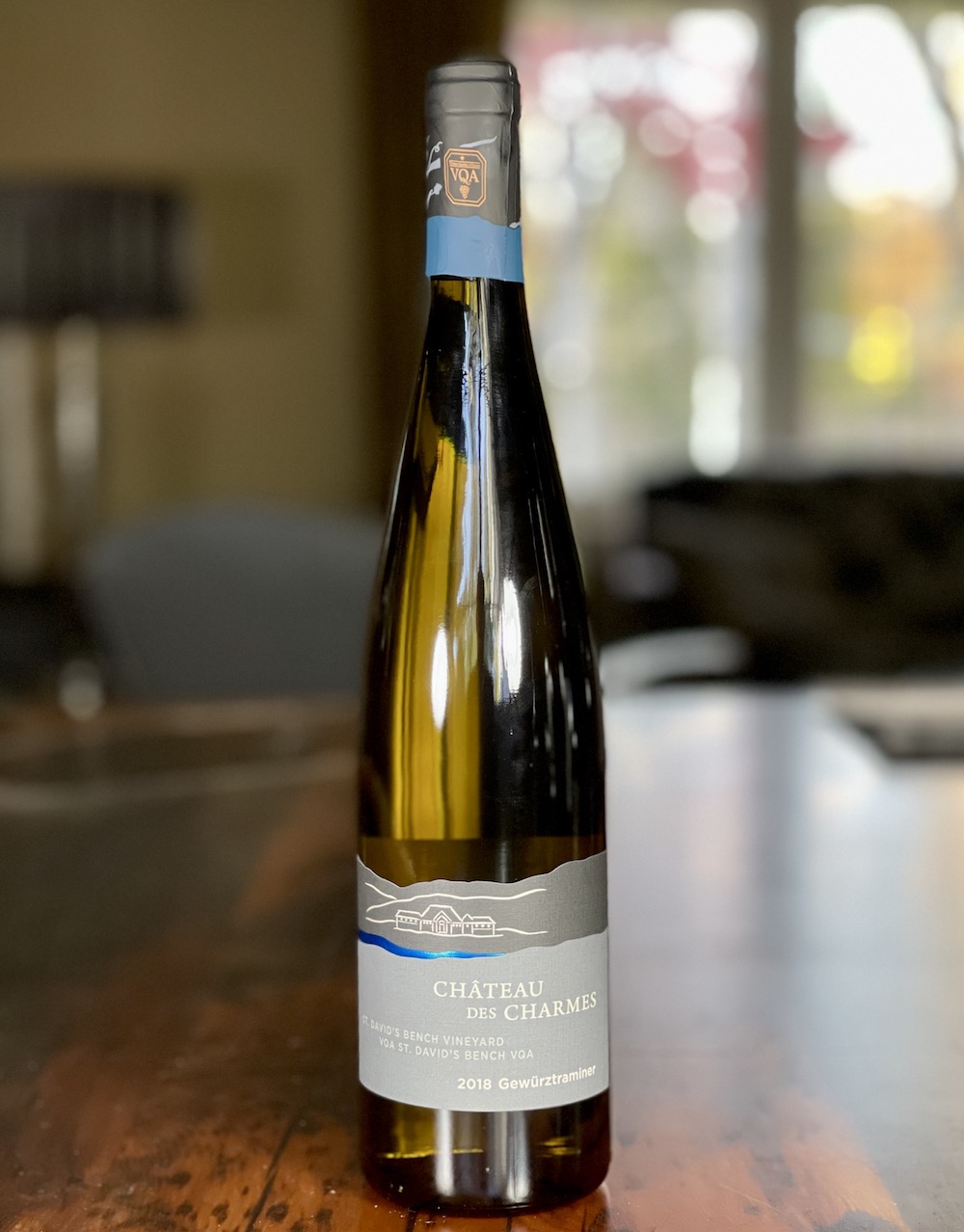
Chateau des Charmes Gewürztraminer 2018 ($22, 88 points) — This estate St. David’s Bench Gew has a lovely mineral edge on the nose followed by grapefruit, ginger, lychee nut, pear skin and underlying tropical fruits. It’s spicy and rich on the palate with lively grapefruit, ginger, ripe pear and a bit on honey on nicely balanced finish.


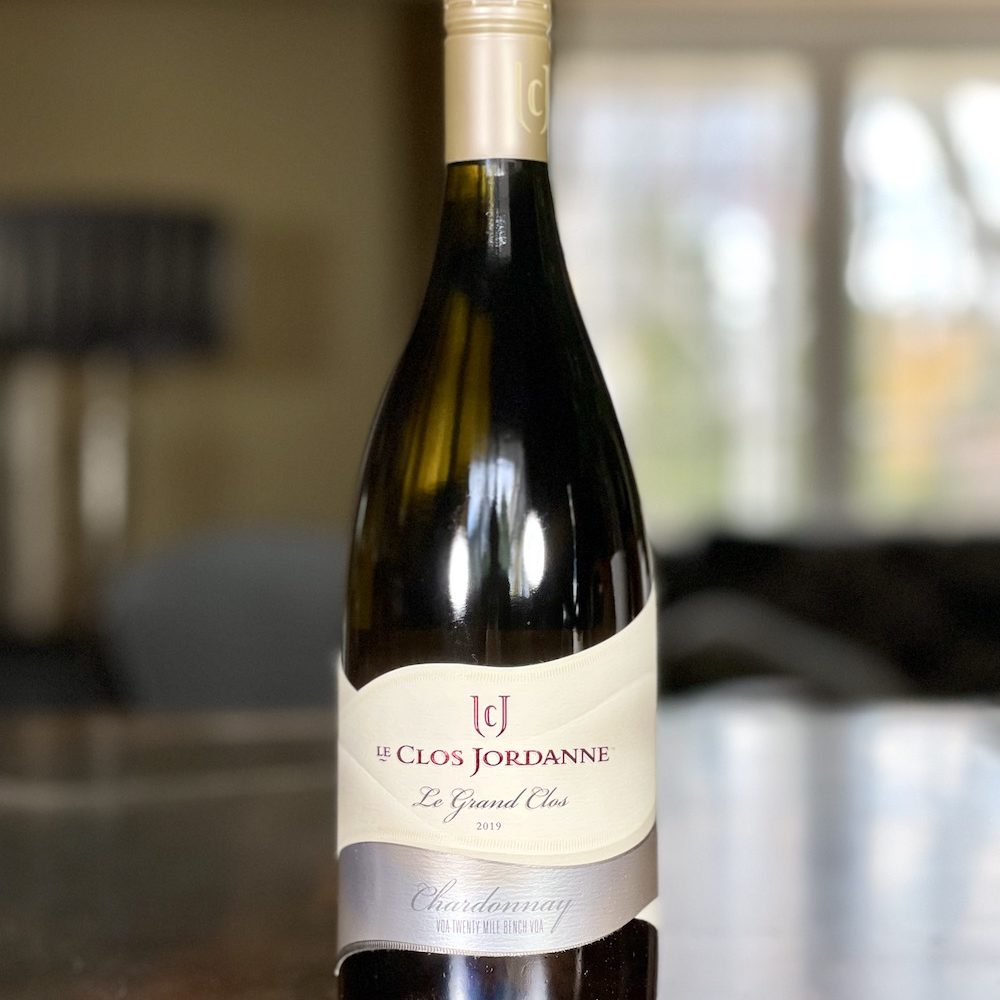



Comment here